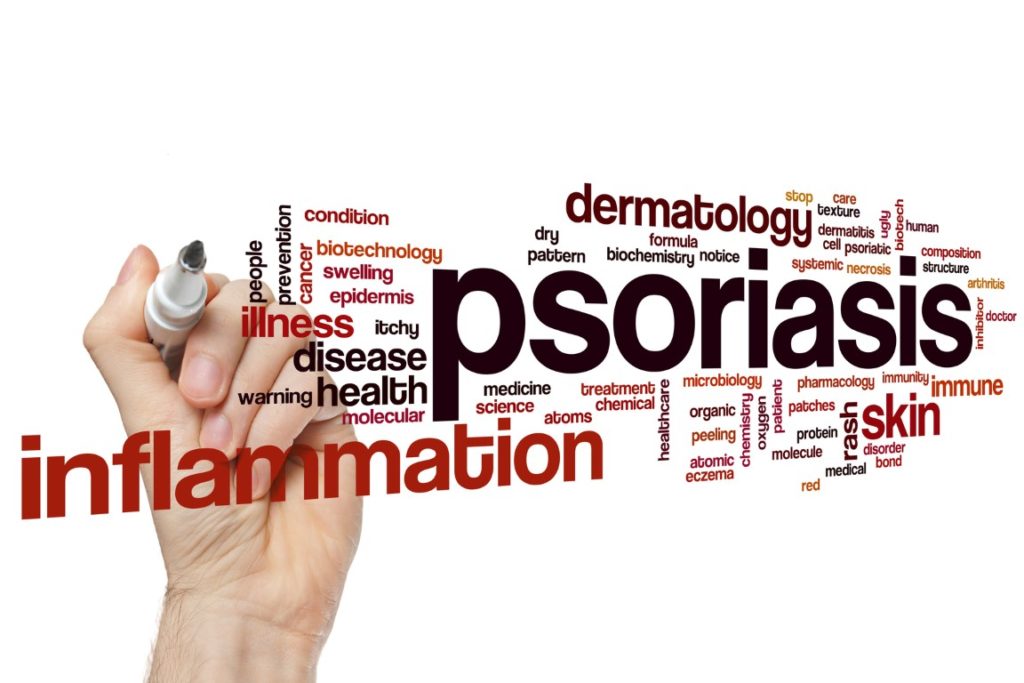Psoriasis is a long-lasting auto immune disease which is characterized by patches of abnormal skin.These skin patches are typically red, itchy, and scaly. They may vary in severity from small and localized to complete body coverage. Injury to the skin can trigger psoriatic skin changes at that spot, which is known as Koebner phenomenon.
The cause of psoriasis is not fully understood. It may be due to genetic factors Around one-third of people with psoriasis report a family history of the disease, and researchers have identified genetic loci associated with the condition. Others include hot water, scratching psoriasis skin lesions, skin dryness, excessive alcohol consumption, cigarette smoking, and obesity. The rate of psoriasis in HIV-positive individuals is comparable to that of HIV-negative individuals, however, psoriasis tends to be more severe in people infected with HIV. Drug-induced psoriasis may occur with beta blockers, lithium, NSAID’s, terbinafine, calcium channel blockers.
types of psoriasis
- Plaque psoriasis
- Guttate psoriasis
- Inverse psoriasis
- Pustular psoriasis
- Erythrodermic psoriasis
- Nail psoriasis
- Psoriatic arhritis
treatment of psoriasis
Despite the fact that psoriasis is incurable, it responds well to many topical and systemic treatments. Even people with severe psoriasis can get relief during flare-ups in about 85% to 90% of cases.
Topical treatments are rubbed directly into the affected skin to bring local relief without the system-wide side effects of medicines taken by mouth. These include salicylic acid ointment, which smoothes the skin by promoting the shedding of psoriatic scales. Steroid creams decrease inflammation relieve itching, and block the production of cells that are overproduced in psoriasis. Calcipotriene (Dovonex), which is related to vitamin D, has proven to be effective.




